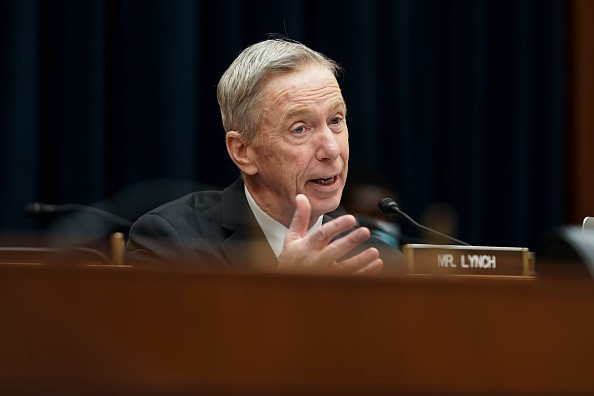Congressman Tests Positive for Coronavirus After Receiving Second Vaccine Dose

Massachusetts Congressman Stephen Lynch announced through his office on Friday that he tested positive for coronavirus despite getting his second vaccine dose, which requires a few weeks to develop immunity.
Spokesperson Molly Rose Tarpey said in a statement that Lynch tested positive for the coronavirus after coming in contact with a staff member in his Boston office who tested positive earlier that week, reported CBS News.
In the statement, Tarpey also explained that Lynch received his second vaccine dose from Pfizer and later on tested negative for the virus prior to President Joe Biden's inauguration.
So far, Lynch appeared to be asymptomatic and felt fine, reported The Blaze. However, he will still be isolating himself and will vote by proxy to fulfill his Congressional duties over the coming week.
It's unclear when Tarpey received his vaccine doses, but the two shots for the Pfizer vaccine is administered with a 21-day interval.
Related story: South Florida Doctor's Death Two Weeks After Getting Coronavirus Vaccine Under Investigation
Another member in the Massachusetts House delegation, Rep. Lori Trahan also tested positive for the virus on Thursday.
"I am fortunate to currently be asymptomatic, and I have immediately begun to self-quarantine," Trahan said on Twitter. She will also be casting votes through proxy.
Vaccines Require Weeks to Build Viral Immunity
Testing positive for COVID-19 despite getting vaccine is still possible as vaccines take up to several weeks to develop viral immunity, explained The Centers for Disease Control and Prevention (CDC).
"It typically takes a few weeks for the body to build immunity (protection against the virus that causes COVID-19) after vaccination," the agency said on its website.
This means there's a possibility for someone to be infected with the virus before or just after vaccination and still get sick, reported Business Insider.
"This is because the vaccine has not had enough time to provide protection," the CDC added.
Pfizer's vaccine against the coronavirus was found to be 95% effective at preventing COVID-19 a week after the second shot had been administered.
COVID-19 Infection Between First, Second Vaccine Dose Also Possible
It is also possible for someone to get infected with the coronavirus during the period between the first and second vaccine shot.
This was what happened to Trahan, who only received her first vaccine dose when she tested positive of the virus.
There are small pieces of genetic material found in vaccines that teach a person's immune system to fight off diseases like the coronavirus. These general materials develop virus-fighting antibodies that prevent a person from getting sick with COVID-19.
However, these take time to do their job.
Read also : Health Care Worker Dies After Second Vaccine Dose, But Family Tells Others to Get Vaccinated
In the case of the Pfizer vaccine, it is only 52% effective at preventing COVID-19 after the first dose.
This gap period is critical for people continue adhering to preventive measures like mask wearing until they get their second dose.
Dr. Josh Mugele, who tested positive for the coronavirus after receiving his first shot said getting infected wasn't a sign that the vaccine didn't work.
"This was just dumb luck," he told Business Insider. "I happened to be exposed within a few days of getting the vaccine, but this still is the best tool we have for fighting the virus."
Subscribe to Latin Post!
Sign up for our free newsletter for the Latest coverage!
© 2026 Latin Post. All rights reserved. Do not reproduce without permission.















